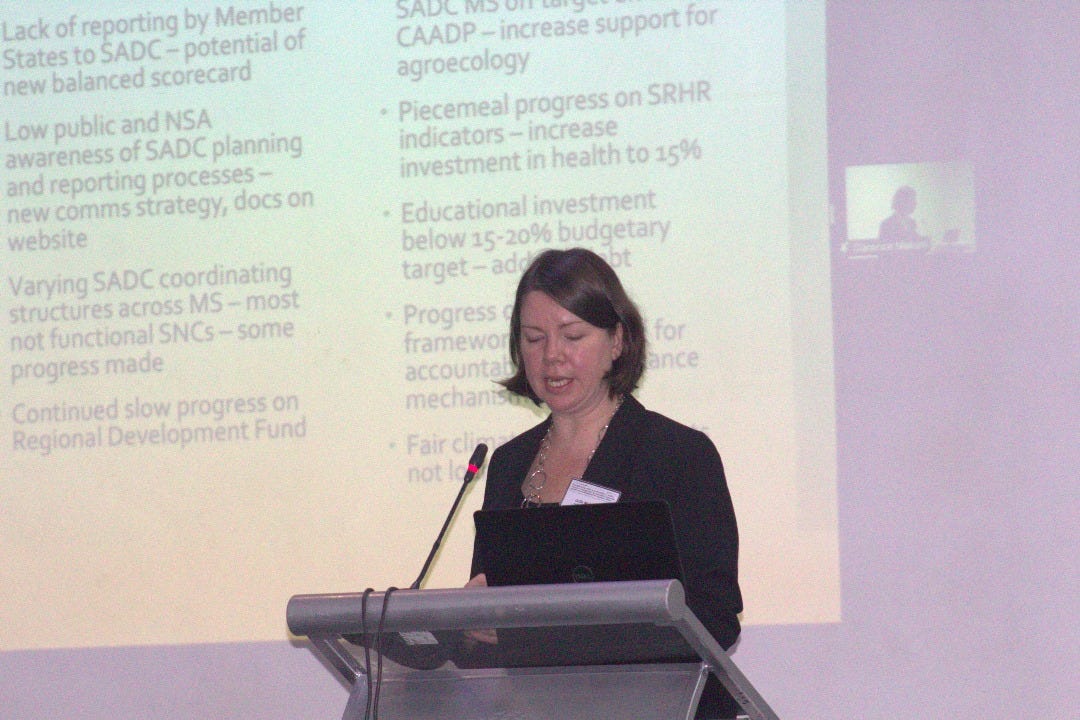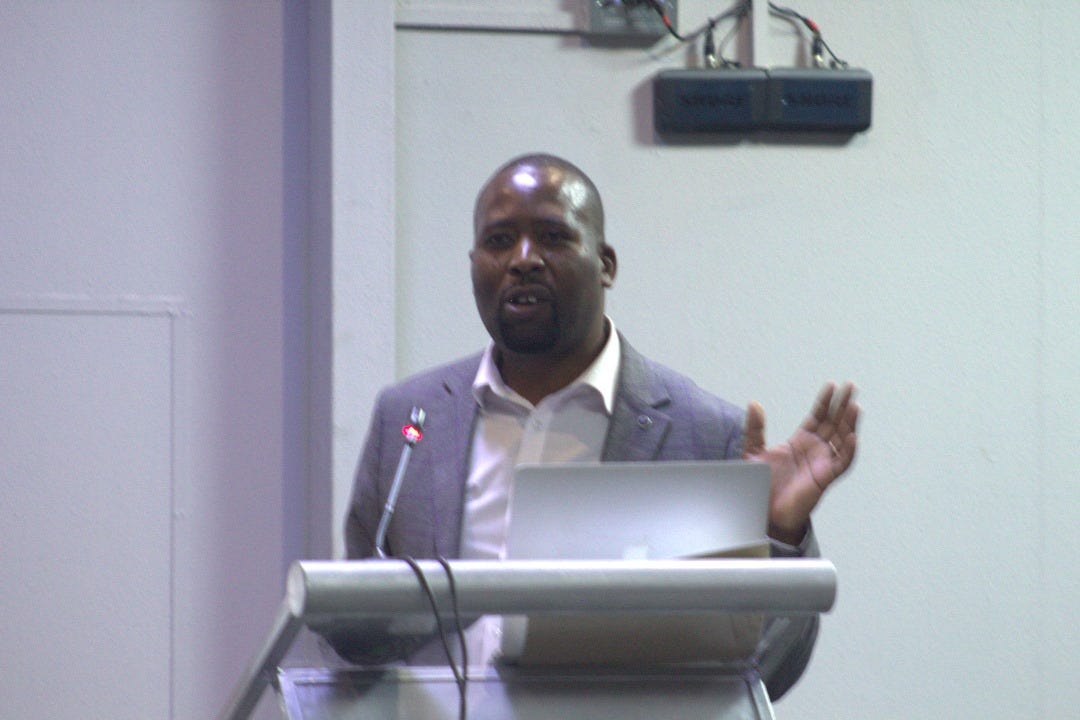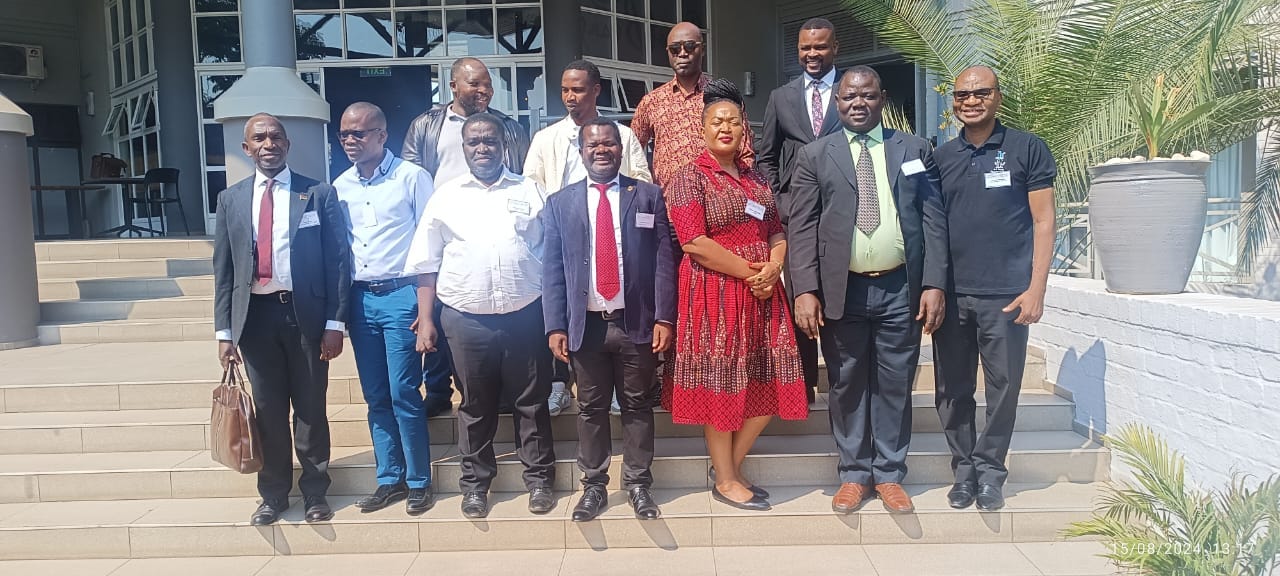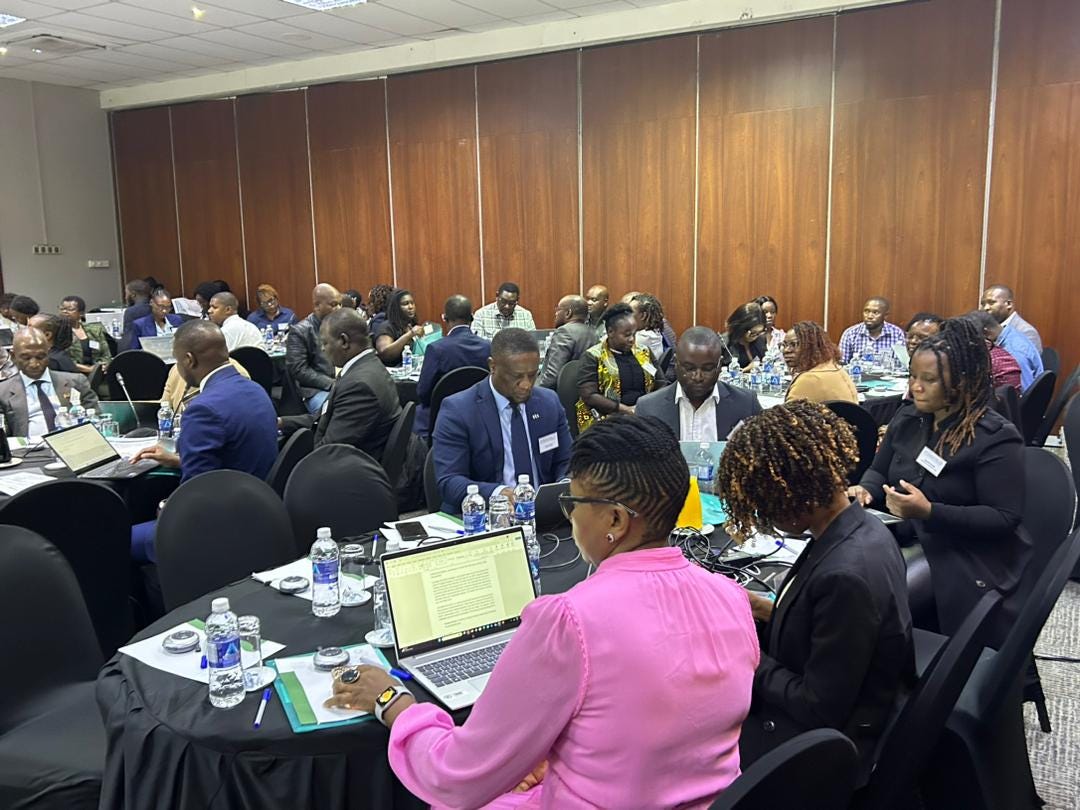Civil Society Calls for Stronger Accountability in SADC Development Plan
The 4th Regional Dialogue for Non-State Actors on the SADC RISDP 2020-2030 represents a significant step in strengthening civil society's voice in regional development processes.

HARARE, Zimbabwe—Civil society groups from across Southern Africa are calling for stronger accountability measures in implementing the region's decade-long Regional Indicative Strategic Development Plan (RISDP) 2020-2030, writes Winston Mwale.
Over 200 representatives from nine Southern African Development Community (SADC) member states gathered virtually and in person in Harare to discuss progress on the Regional Indicative Strategic Development Plan (RISDP) 2020-2030.
The 4th Regional Dialogue for Non-State Actors on the SADC Regional Indicative Strategic Development Plan (RISDP) 2020-2030, held on August 14-15, 2024, brought together a diverse array of participants from nine Southern African Development Community (SADC) member states.
The two-day event, hosted in Harare with satellite meetings in Dar es Salaam and Lusaka, focused on the theme "Strengthening social accountability in public resource management for sustained economic growth and development in Southern Africa."
Participants included civil society organizations, smallholder farmers' associations, trade unions, youth organizations, and faith-based groups, alongside representatives from the SADC Secretariat and various government departments.
As the RISDP 2020-2030 approaches its midpoint, the dialogue served as a crucial platform for non-state actors (NSAs) to evaluate progress, identify challenges, and propose recommendations to enhance the plan's effectiveness.
"We recognize the achievements realized by SADC and its Member States in implementing the RISDP 2020-2030," the communiqué stated, highlighting advancements in areas such as HIV/AIDS prevention and agricultural investment.
However, it also raised significant concerns about persistent challenges in healthcare financing, food security, and youth unemployment.
One of the key issues highlighted was the lack of consistent progress reporting by member states.
"We express concern with the persistent lack of progress reporting by Member States on their SADC commitments, despite the existence of a regional online monitoring and evaluation system," the communiqué noted.
This lack of transparency hinders effective assessment and improvement of regional development efforts.
The dialogue acknowledged some positive developments, such as the approval of NSA Accreditation Guidelines by the SADC Council of Ministers in March 2024 and the initiation of an NSA Forum.
However, participants stressed the need for more robust engagement mechanisms.
"We encourage SADC Secretariat to expedite the operationalization of the Regional NSA Engagement Mechanism, including the online NSA accreditation system, and piloting and establishment of an inclusive, diverse, and representative NSA forum," the communiqué recommended.
This call for increased civil society participation reflects a growing recognition of the vital role NSAs play in regional development.
Climate change emerged as a critical concern during the discussions. Participants called for innovative financial solutions to address the mounting environmental challenges facing the region.
"We call for the establishment of a SADC climate action debt swap mechanism and a Regional Climate Adaptation Resilience Fund to address climate change challenges in the region," the statement urged.
This recommendation underscores the urgent need for coordinated regional action on climate resilience and adaptation.
The dialogue also highlighted the importance of education in driving regional development.
Participants urged SADC member states to meet international benchmarks for education spending, recommending allocation of "15-20% of national budgets or 4-6% of GDP" to the sector.
This push for increased educational investment aims to address skills gaps and enhance human capital across the region.
In the health sector, the communiqué noted progress in reducing HIV/AIDS prevalence but expressed concern over gaps in healthcare financing.
"We encourage Member States to implement comprehensive digital health monitoring tools and explore online social accountability mechanisms, particularly for sexual and reproductive health rights," the statement recommended.
It also called for increased national health spending to meet the Abuja Declaration target of 15% of national budgets.
Agricultural development, a cornerstone of the region's economy, received significant attention.
The dialogue called for the mainstreaming of agroecology in the new SADC Regional Agricultural Investment Plan (RAIP) 2025-2030, with a focus on financing and increased support for rural transformation.
Specifically, it recommended "allocating at least 5% of agriculture budget for agroecology" and emphasized the need for improved rural infrastructure and services.
The persistent challenge of youth unemployment was another key focus area.
Participants called for the development of a "SADC-wide strategy on harnessing artificial intelligence and digital technologies for sustainable development," while also addressing the associated challenges of youth unemployment.
This recommendation reflects the need to balance technological advancement with inclusive economic growth.
Gender equality and the fight against gender-based violence (GBV) were also prominent in the discussions.
The communiqué called for increased transparency and inclusivity in gender-responsive policy implementation.
It urged member states to "provide mechanisms for redress of GBV and empower communities through legal assistance, ensuring affordable access to justice, and improving the quality of legal outcomes."
On the economic front, the dialogue emphasized the importance of facilitating trade within the region and beyond.
Participants encouraged member states to "simplify trade rules for cross-border traders and medium/small-scale enterprises to harness the benefits of the African Continental Free Trade Area (AfCFTA)."
This recommendation aims to boost intra-regional trade and economic integration.
The communiqué also addressed the critical issue of development financing.
It urged the SADC Secretariat to "facilitate the financing of sustainable development through operationalization of regional mechanisms, such as the SADC Regional Development Fund and Agricultural Development Fund."
Additionally, it called for decisive action on capital flight, corruption, and illicit financial flows to increase available funds for social services and development.
A notable concern raised was the slow progress in establishing SADC National Committees (SNCs) in some member states.
The dialogue called upon "United Republic of Tanzania, South Africa, and Zimbabwe to establish SNCs with urgency," emphasizing the importance of these structures in coordinating regional integration efforts at the national level.
As the RISDP 2020-2030 moves into its second half, the recommendations from this dialogue aim to ensure that the region's development goals remain on track and benefit all citizens of southern Africa.
The communiqué will be submitted to the SADC Secretariat, SADC Parliamentary Forum, and member states for consideration in future policy decisions.
The 4th Regional Dialogue for Non-State Actors on the SADC RISDP 2020-2030 represents a significant step in strengthening civil society's voice in regional development processes.
As southern Africa grapples with complex challenges ranging from climate change to economic integration, the insights and recommendations from this gathering offer a valuable roadmap for more inclusive and effective regional development strategies.
The dialogue's organizers expressed gratitude to their donors, particularly highlighting "the regional office of the Swiss Agency for Development and Cooperation (SDC) for their support of this dialogue."
This acknowledgment underscores the importance of international partnerships in fostering regional development and civil society engagement in southern Africa.
As the SADC region moves forward with its ambitious development agenda, the active participation and vigilance of non-state actors, as demonstrated in this dialogue, will be crucial in ensuring that the RISDP 2020-2030 delivers on its promise of inclusive growth and sustainable development for all southern Africans.






